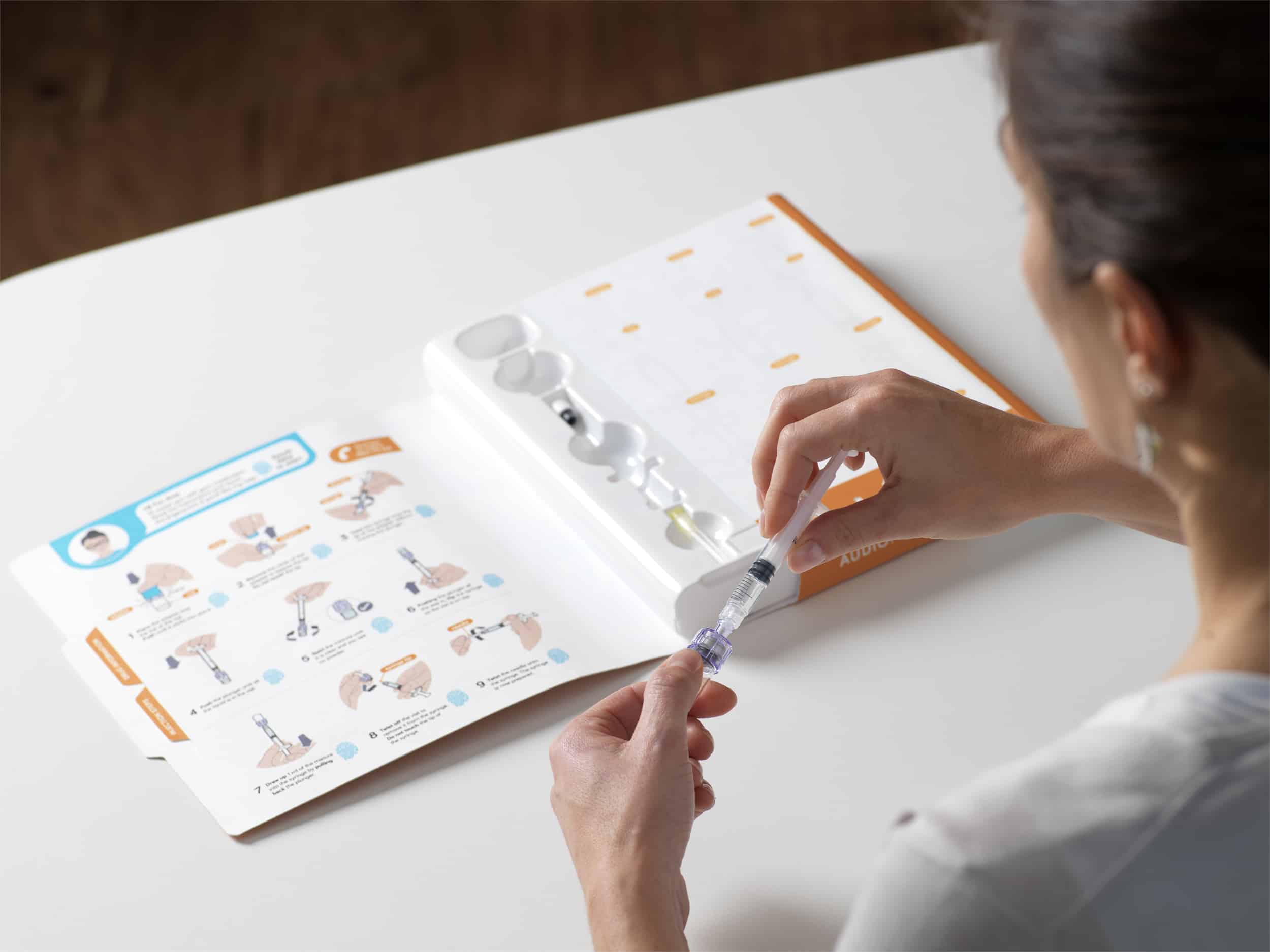
Help for people newly diagnosed with a chronic disease and facing a complex new regimen of medication could come from audio-enabled drug packaging, according to product design specialists Cambridge Consultants.
All drugs are issued with instructions in the packet. However, these can be hard to understand, with long lists of contraindications and possible side-effects, and instructions on how to use associated devices. Non-compliance with drug prescriptions is a major problem, which has serious implications for the health of patients and can sometimes lead to hospital admissions which would not have been necessary if instructions had been understood clearly. This is particularly a problem for people who have been newly diagnosed with a chronic disease like diabetes, rheumatoid arthritis, or multiple sclerosis, which require combinations of drugs to be taken at specific times of day and specific conditions (such as with, before or after food, or according to a particular reading on a tesing device); or in a way that the patient may not be used to, such as by injection or inhalation.
Cambridge Consultants has developed medication packaging incorporating touch-sensitive paper that activates an audio recording of instructions on how to take the enclosed drugs. “From our extensive interviews with patients learning to use various medical devices with packaging and instruction leaflets, we know that traditional instructions can be difficult to read and learn from – often, a patient doesn’t even know where to start,” said Adam Haynes, a senior industrial designer at Cambridge Consultants. “Our deep expertise in industrial design and human factors gives us the perfect insight to create a packaging system that is more intuitive and much less intimidating for patients. Our goal with AudioPack is to transform medical treatment through user-friendly, approachable design – ultimately improving effectiveness and benefiting the whole healthcare ecosystem.”
Making its debut at the CES consumer electronics exhibition in Las Vegas this week, AudioPack is designed for user-friendliness; the audio uses an avatar named Ana to provide step-by-step instructions for any medical devices that might be necessary to take the appropriate drugs. The instructions are designed for less tech-savvy users, and take account of cognitive impairment that might be caused by the disease being treated. According to Cambridge Consultants, the system could also be useful for training healthcare staff, and might be particularly useful for treatments to be administered under emergency conditions, where speed is of the essence and staff might be nervous.










Deep Heat: The new technologies taking geothermal energy to the next level
No. Not in the UK. The one location in the UK, with the prospect of delivering heat at around 150°C and a thermal-to-electrical efficiency of 10-12%,...